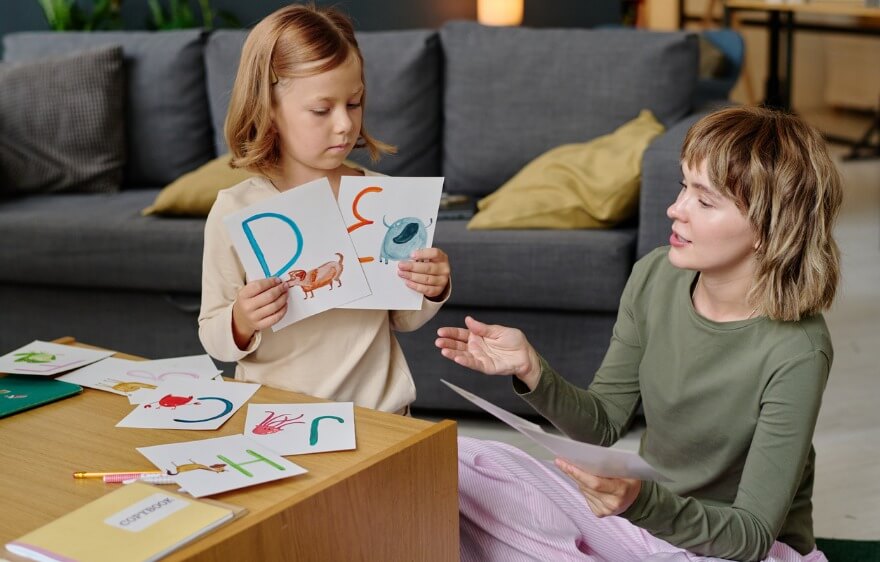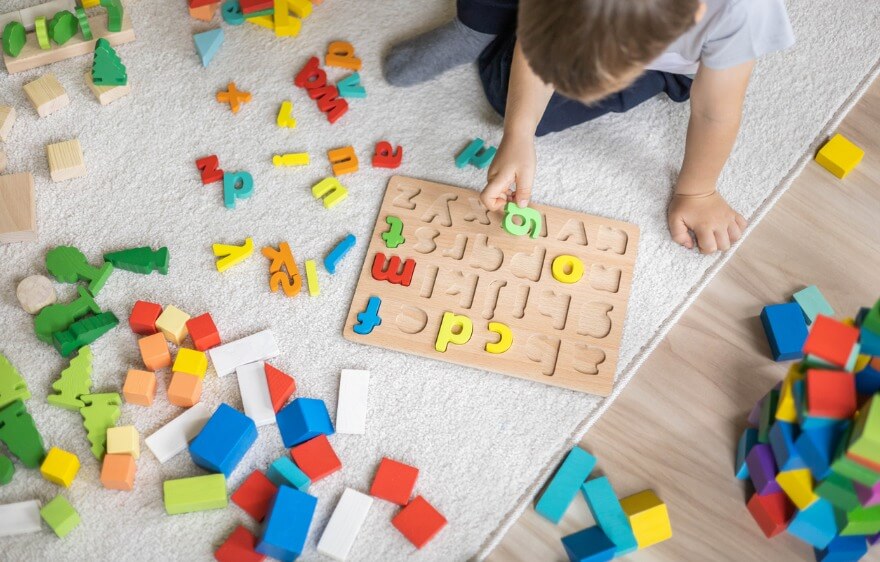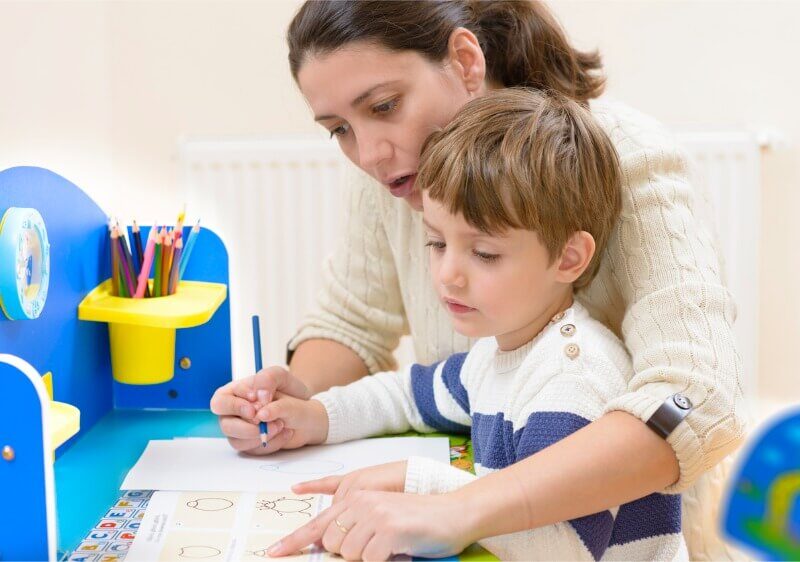As parents, one of the most exciting milestones is hearing your little one’s first words. From adorable babbling to the first “mama” or “dada,” speech development is a thrilling journey for both parent and child. But many parents find themselves wondering: what age should a child start talking clearly? Is there a “normal” timeline, and if not, what factors influence how quickly children develop speech?
In this post, we’ll answer the question “what age should a child start talking clearly?” by exploring the general timeline for speech development, factors that can impact speech clarity, and what causes speech delays. Finally, we’ll examine when it might be time to seek professional help from a speech therapist.
Let’s dive into the fascinating world of speech development to better understand what’s happening when your little chatterbox is learning to communicate.
What Age Should a Child Start Talking Clearly?
Most children begin to speak in more understandable sentences around the age of three to four years. By the time they are four years old, their speech should be about 75-100% intelligible to strangers. This means that while they might still mispronounce some words or have a few grammatical quirks, the majority of what they say should be clear and easy to understand.
While there are general speech milestones to look for, speech clarity can vary widely from child to child. It’s important to remember that every child develops at their own pace. Now, let’s dive deeper into the factors that affect when and how clearly children begin talking.
Factors That Influence Speech Development
Several factors contribute to what age a child should start talking clearly. From natural developmental differences to environmental influences, here are some key considerations that play a role in speech clarity:
Developmental Milestones
Children typically follow certain speech and language milestones. These include cooing and babbling as infants, forming their first words around 12 months, and speaking in short phrases by age two. By the age of three, most kids can string together three to four word sentences. Speech clarity generally improves with each milestone, but some kids take longer than others to hit these marks.
Hearing Ability
Functional hearing is crucial for speech development and is very influential to what age a child should start talking clearly. Children learn to mimic the sounds they hear, so any hearing issues, even temporary ones caused by ear infections, can delay clear speech. Regular hearing checks, especially if there’s any concern about speech or language delays, are essential.
Bilingual or Multilingual Environments
Children raised in bilingual or multilingual households may take longer to speak clearly in either language, but this is completely normal! They’re absorbing and processing multiple sets of sounds and rules, which can slow down speech clarity in the short term but offer long-term cognitive benefits.
Parental Interaction
Children who are spoken to frequently and engaged in conversation often develop speech more quickly. Engaging with your child, responding to their babbling, and reading to them are all excellent ways to boost language development. The more exposure they get to language, the more opportunities they have to practice and refine their speech.
Personality and Temperament
It can be easy to overlook, but personality plays a huge part in what age a child should start talking clearly. Some children are naturally more reserved and may not talk as much as their more outgoing peers. A shy or introverted child may understand language well but choose to speak less often, which can slow down the development of clear speech. On the flip side, more talkative kids may be eager to communicate, even if their speech isn’t perfectly clear right away.
Motor Skills Development
Talking clearly requires coordination of several muscle groups, including the lips, tongue, and vocal cords. Children who have difficulties with fine motor skills may also struggle with articulating words clearly. If your child is late to develop motor skills like chewing or blowing, this could also impact their speech clarity.
Potential Causes of Speech Delays
Speech delays can occur for many reasons, and they’re not always a cause for concern. But identifying the potential causes can help you determine whether intervention may be needed.
1. Hearing Loss
As mentioned earlier, undiagnosed hearing problems are one of the most common causes of speech delays. If your child isn’t hearing speech sounds properly then it can lead to an inability to articulate them clearly.
2. Developmental Delays
Children with developmental disorders like autism spectrum disorder (ASD), Down syndrome, or intellectual disabilities may experience speech delays. These conditions can affect language comprehension and production, as well as the social aspects of communication.
3. Speech and Language Disorders
Specific speech disorders, such as the motor speech disorder, childhood apraxia of speech, or phonological disorders where children have trouble learning sound rules, can make it difficult for kids to articulate words clearly. Language disorders, where children have trouble understanding or using language, may also affect what age a child should start talking clearly.
4. Oral-Motor Issues
Some children may have difficulty coordinating the muscles needed for speech due to conditions like oral-motor dysfunction. These issues can impact clarity, leading to difficulties with pronunciation, especially with more complex sounds like “r,” “s,” or “th.”
5. Environmental Factors
In addition to developmental and physical factors, environmental influences such as a lack of stimulation or limited exposure to speech can slow down speech clarity. Children who don’t have as many opportunities to engage in conversation or hear rich language may take longer to develop clear speech patterns.
When to Seek Intervention Through Speech Therapy
If your child is not meeting the expected milestones for speech development, it may be time to consider speech therapy. But how do you know if it’s necessary? Here are some signs that might indicate it’s time to seek professional help:
Limited Vocabulary or Incomprehensible Speech by Age Three
If your child is three years old and is still struggling to form simple sentences or if most of what they say is unintelligible to you and others, it may be worth discussing with a pediatrician or speech therapist. Most three-year-olds should have a vocabulary of about 200 words and be able to communicate their basic needs and wants.
Difficulty Following Directions or Responding to Questions
Speech and language development go hand-in-hand. If your child is having trouble understanding or following directions, or not responding to simple questions, this may indicate a receptive language delay, which can affect their speech clarity.
Ongoing Stuttering or Pronunciation Problems
It’s normal for children to mispronounce words or stumble over their speech as they learn. But if stuttering persists past age four, or if your child continues to have trouble with certain sounds (like “r” or “s”) beyond age five, a speech therapist may be able to help correct these issues.
Frustration When Trying to Communicate
If your child becomes frustrated or upset because they can’t make themselves understood, it’s worth seeking help. Speech therapy can outline goals and give children the tools they need to communicate more clearly and with greater confidence.
The Importance of Early Intervention
Early intervention is key when it comes to speech delays. The sooner you identify a problem and seek help, the more likely it is that your child will catch up to their peers and develop clear, confident speech. Children’s brains are highly adaptable, especially in the early years, making it the best time for speech therapy to have a significant impact.
Speech therapists can help by working on specific speech sounds, improving language comprehension, and providing parents with strategies to encourage better communication at home. Early intervention doesn’t just benefit speech — it can also improve your child’s social skills, emotional well-being, and overall confidence as they interact with others.
Helping Every Child Develop at Their Own Pace
In answering the question of what age a child should start talking clearly, It’s important to remember that speech development isn’t a race. Every child grows and learns at their own pace, and while there are general guidelines for what age a child should start talking clearly, there is also a wide range of normal. Factors like personality, hearing ability, and environmental influences all play a role in speech clarity, and some children may simply take longer to get there.
If you’re concerned about your child’s speech development, trust your instincts and consult a pediatrician or speech therapist. And remember, early intervention can make a world of difference in helping your child become a confident, clear communicator. Keep talking, keep reading, and most of all, keep cheering on your little one as they navigate the exciting journey of speech development!
Schedule Your Child’s Care Assessment Today
At Care Options for Kids, we understand the unique challenges of caring for a child with health conditions. Our dedicated team of pediatric home health professionals is here to support your family with compassionate, expert care tailored to your child’s needs. Contact us today to schedule an assessment and learn how we can help you navigate this journey with confidence and care.
Click here to start your journey to better care.
This post is for educational and informational purposes only. You should always speak with your own therapist before implementing this information on your own.






